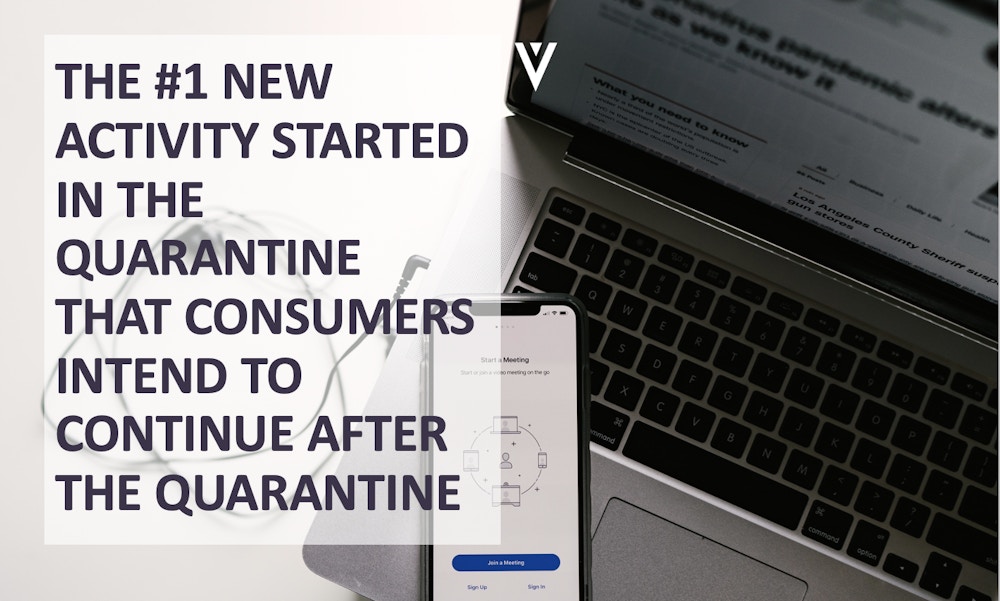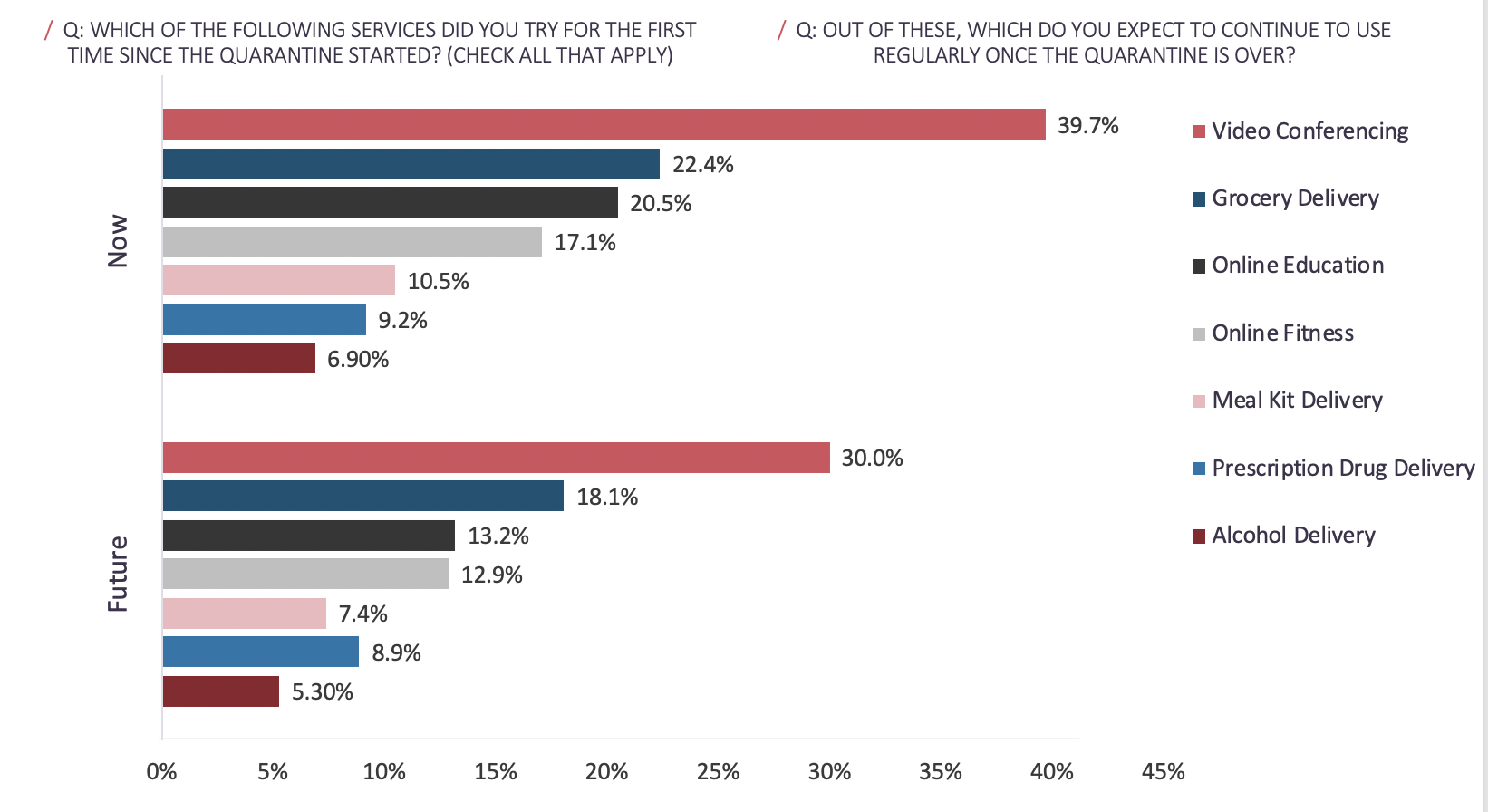By Austin Goltz
How Long Does It Take to Form a Habit?
It is debated how long it truly takes to form a habit. Some believe it takes 21 days. This stems from a piece of literature written in 1960 by Dr. Maxwell Maltz, a plastic surgeon and psychologist. Dr. Maltz witnessed that it took his patients about 21 days to let go of their pre-surgery appearance and accept their new image. A research study released in 2009 by Phillippa Lally in the European Journal of Social Psychology found that it took a bit longer, closer to 2 months or 66 days to be exact. Whichever the exact number may be, old habits can be broken and new habits can be formed, and it can happen with relative frequency.
Our Current Market Environment Has Forced Consumers to Break Old Habits
In the current market environment, consumers are in some way being forced to alter old behaviors and form new habits. About one month ago, states required non-essential businesses to shut their physical locations to help stop the spread of Coronavirus. Gyms, restaurants, barbershops, salons, shopping malls, places of worship and other non-essential businesses were forced to close their doors. In April, states like Connecticut, New Jersey, Hawaii, Maryland, Pennsylvania, Rhode Island and New York have not only required the closure of non-essential businesses, but are now strongly recommending Americans to wear a mask or other face covering while in public areas where social distancing is not possible. This would include essential businesses like grocery stores, pharmacies, convenience stores and liquor stores. Not only are consumers asked to wear face masks, but they are also advised to limit trips to these locations to avoid large crowds. It is safe to say that Coronavirus has materially altered the way in which we go about our day to day lives. Consumers still demand these services but they have been forced to be more creative in how they are consumed or received.
Accelerated Adoption of Internet/Digital Services
With non-essential retail businesses closed and with other restrictions placed on essential businesses, it is no surprise that consumers are trying new mediums to receive and consume services. For instance, a common consumer habit is going to the gym. Yet in the past month, gyms have shut their doors around the country. In Volition’s Consumer Sentiment Study, we found there’s a lot of opportunity in a market where strong demand meets limited supply. In fact, in the past month over ~17% of consumers have tried an online workout for the first time. Consumers are trying new internet enabled services across a variety of verticals. Most notably, ~40% of consumers tried video conferencing for the first time and ~22% tried grocery delivery.
Consumers Plan to Continue to Use These Services
The stay at home mandate has not only accelerated the adoption of a host of digital services but many consumers expect to maintain these services going forward which is a very positive sign for internet/digital businesses. For instance, ~81% of consumers who tried grocery delivery for the first-time plan to continue to use the service after the quarantine has been lifted. The #1 activity started in the quarantine that will persist after the quarantine is prescription drug delivery. ~97% of consumers expect to use the service in the future. It has been nearly a month since the stay at home mandate has been put into place and we are already seeing new habits take root.
Internet/Digital Services Companies Are Benefiting
In the public markets, companies in the internet/digital services bucket are benefitting from accelerated adoption. For instance, Zoom’s market cap is up ~78% since the beginning of the year as the company has received an unexpected flood of new users. Companies in the digital health space have also witnessed a surge in demand, with Teladoc’s market cap rising ~96% since the beginning of the year. Even Peloton, a company many might believe would be negatively impacted by a possible decrease in consumer discretionary spend, is up ~4% in 2020. In any bear market, there are opportunities to make money. The market is playing nice to companies providing digital services to consumers.
Where We See Value
Whether the experts say habits take 21 days or 66 days to form, we are already seeing a shift in behavior. Consumers are accelerating initial adoption of many digital services and expect to maintain those practices going forward. We see an opportunity in internet enabled business models that have been able to fill a void for consumers with pent up demand but limited access to supply. Areas such as online bill pay, digital health and enabling the movement of physical things through technology will remain focus areas for our firm. The risk is that consumers will quickly fall back on their old ways after the stay at home mandate is over. However, our research shows that new habits in the digital/internet ecosystem are already forming.
Sign up to get Volition Viewpoints in your inbox
About the Author:

AUSTIN GOLTZ
Analyst
Austin joined Volition Capital in 2018 and is responsible for sourcing and evaluating new investment opportunities in transactional Internet and consumer product companies. He’s primarily focused on e-commerce, travel, and shipping & logistics.
Connect with Austin:

